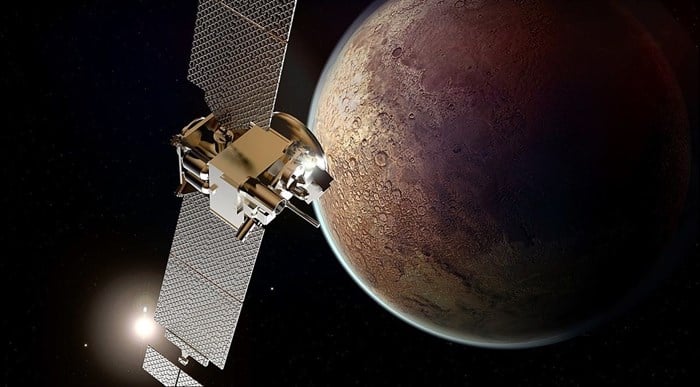Affordable, accessible broadband via satellite awaits government go-ahead
Tapping into innovative, locally developed satellite technology, however, has presented a light at the end of the tunnel with an opportunity for South Africa – and the African continent as a whole – to reap the benefits of inclusive, affordable and reliable internet access.
This is according to Bart Cilliers, MzansiSat's chief executive officer, who notes that satellites are the only reliable and time-efficient short-term solution to expanding broadband access on a national level.
A recent study by Point Topic - a resource for worldwide broadband, IPTV and VoIP market intelligence - revealed that ADSL and fibre prices in South Africa are the 16th most expensive in the world. The research scorecard used in the study compared the entry-level, media, and average residential broadband tariffs in 80 countries.
With this in mind, Victor Stephanopoli, MzansiSat's chief operations officer (COO), asks, “What is your constitutional right of free speech worth, if you have no decent means of making your voice heard?”

MzansiSat’s concept of a satellite for Africans, which will have the ability to deliver cheap and ubiquitous broadband capabilities, was announced at the recent ITU Telecom World conference. Cilliers highlights that the ITU platform has given the team behind the proposal the opportunity to gather valuable insights on the African telecoms industry’s regulatory environment.
The proposed innovation was also be presented to industry leaders, decision makers and legislators at Aerospace, Maritime and Defence (AMD) Conference and the Africa Aerospace and Defence (AAD) Expo.
Cilliers says, “We have been working on this concept since 2013 with the primary goal of connecting South Africa to the world through new infrastructure anchored by the first South African owned and operated telecoms satellite.”
Hoping to receive public sector buy-in to launch their first satellite - MzansiSat-1 - into space and debut their offering to the African market in 2022, MzansiSat is, in Cilliers’ words, ready to go.
“The biggest challenge we face is securing the legislative and political approval we need to launch the satellite. Once this box is ticked, superfast, super-cheap satellite internet offering competition-shattering pricing and military grade encryption can be a reality, ensuring greater access to technology and the opportunities that come along with it.”
“While the infrastructure required to provide the service has the potential to lay the basis of a new African economy, consumers will not be required to pay for this infrastructure – members of the public will just be paying for their own connection service,” he explains.

Bernard Greyling, chief technology officer at MzansiSat, adds that the infrastructure surrounding the MzansiSat concept will not only improve the value of the country’s telecoms industry and support the national broadband development framework but will also act as a foundational breakthrough in terms of providing a new way of sharing applications and services with the African public. This is over and above the almost immediate value to the public - empowering them with a great, affordable connection - no snags, no strings,” Greyling explains.
Already gaining international recognition, MzansiSat was shortlisted for the prestigious ITU Telecom World Global SME Award 2018.
Cilliers concludes, “While the country has experienced turbulence with regards to its economic stability in recent years, South Africa keeps growing and so will our need to communicate with the global community. With this innovation at our fingertips, there is no better time than the present to launch South Africa into a realm of inclusive connectivity.”
Related
Africa’s entertainment and media industry: A positive story of resilience and expansion 28 Jan 2025 Musk's Starlink ordered to cease operations in Namibia 28 Nov 2024 Parliament questions State Digital Infrastructure Company 31 Oct 2024 SA fibre providers are bridging the connectivity gap 24 Oct 2024 Malatsi pushes for broadband landscape shift 8 Oct 2024

































